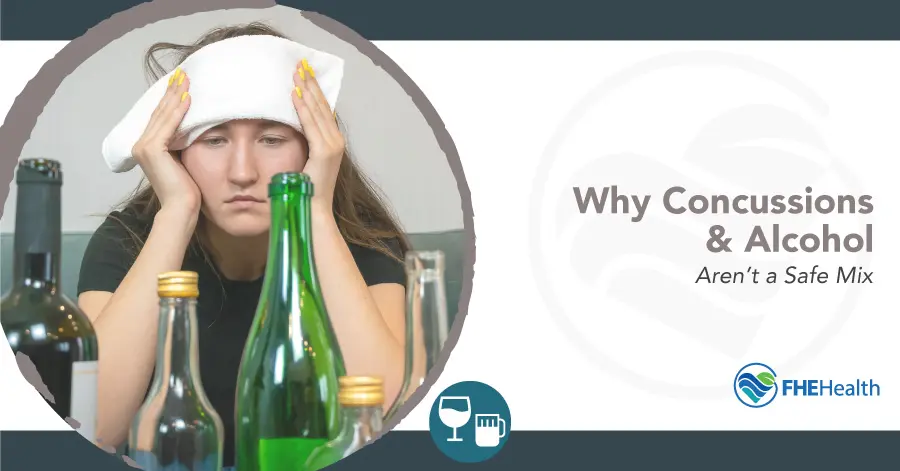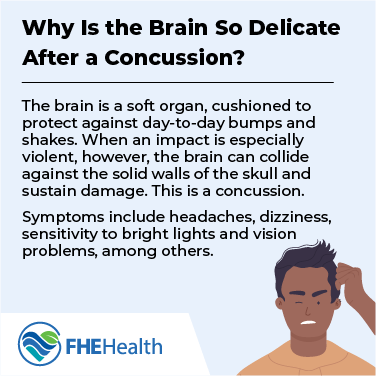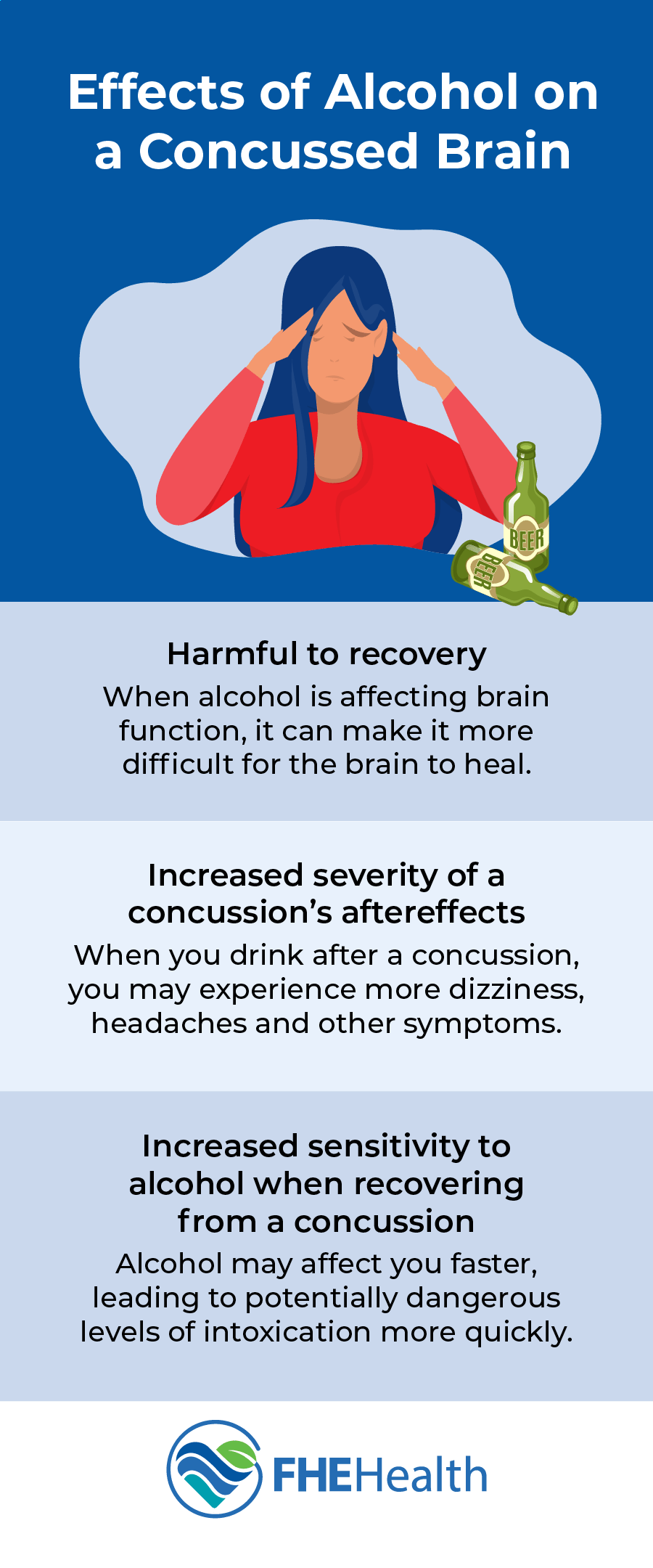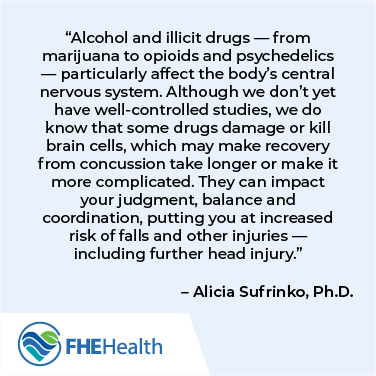
Special care is needed after a potential or confirmed concussion. Depending on the severity, you may have to reduce your activity level for your concussion recovery. You might have to wait a few hours before sleeping and remain under supervision until the short-term symptoms resolve. You may also be told not to drink after a concussion — but why? What’s really at the heart of the problem with combining a concussion and alcohol use?
We find that when people don’t understand the importance of following a specific direction, they may be less likely to comply with it. With that in mind, we’re taking the opportunity to explain the relationship between concussions and alcohol. We’ll discuss why it’s important to avoid drinking after a concussion (or any brain injury), and why it’s vital to follow your doctor’s directions after such an injury.
Why Is the Brain So Delicate After a Concussion?
 Understanding the answer to this question starts with learning what happens when you suffer a concussion.
Understanding the answer to this question starts with learning what happens when you suffer a concussion.
The brain is a soft organ, cushioned to protect against day-to-day bumps and shakes. When an impact is especially violent, however, the brain can collide against the solid walls of the skull and sustain damage. This is a concussion.
The symptoms associated with a concussion include headaches, dizziness, sensitivity to bright lights and vision problems, among others. Essentially, a concussion is an injury to the brain that needs time to heal properly. For it to do so, you need to rest. You also need to avoid activities that put strain on the brain or affect the way it functions.
The Mental Health Impact of Concussions
Even without the influence of alcohol, concussions can cause a lot of damage to a person’s mental health, especially with repeated trauma. Every additional brain injury raises the risk of suffering from conditions like chronic depression and memory loss down the road.
Recent research has uncovered the potential for even more severe damage with a condition called chronic traumatic encephalopathy (CTE). Individuals in occupations such as professional sports, where violent collisions are more frequent, are especially vulnerable to CTE.








